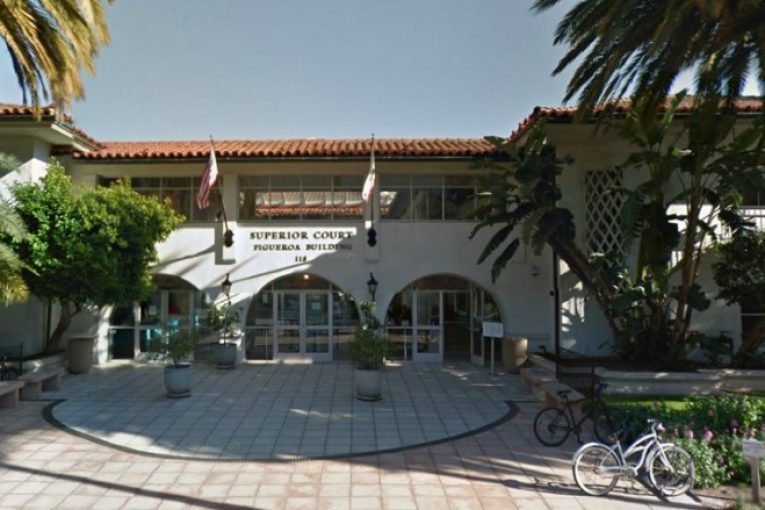
 Elizabeth Garabedian
Elizabeth Garabedian
SANTA BARBARA, CA – Santa Barbara Superior Court Judge Clifford Anderson denied pretrial release of Jose Contreras here late last week—Contreras is charged with making threats of a crime with intent to terrorize and an enhancement to a serious felony for making criminal threats.
Jose Contreras was set to be arraigned for these two felony charges, and Deputy Public Defender Dorsa Karric, who represented him, asked to address his custody status.
Karric requested that Contreras be “released today on a supervised trial release as recommended by pretrial services.” Karric stated that she had reviewed the terms and conditions of release with Contreras and Contreras was “confident and happy to comply.”
 Contreras received a medium-low score on his risk report, but had positive reference feedback. Karric went on to explain that his references believed that he would return to court if released and abide by the terms. “Contreras is willing, if the court sees fit, to wear an ankle monitor so your Honor can be assured of his compliance.”
Contreras received a medium-low score on his risk report, but had positive reference feedback. Karric went on to explain that his references believed that he would return to court if released and abide by the terms. “Contreras is willing, if the court sees fit, to wear an ankle monitor so your Honor can be assured of his compliance.”
Deputy District Attorney Justin Greene opposed release, adding, “My recollection was that there was no input from the victim as required by Marsy’s Law.”
Greene noted that Contreras “has an unverified residence… and numerous pending cases. I think there are two DUIs, a DV case, now the felony of 422. Looking at the totality he is an overall public safety threat based upon his recent conduct and he should remain in custody based upon that.”
PD Karric said the victim’s input had no weight on the defendant’s release.
“Mr. Greene argued that Marsy’s Law requires input from the alleged victim and I understand that this court does prefer to receive that input, but I do want to note for the record the I’ve read and re-reviewed Marsy’s Law numerous times recently since hearing this argument, and would argue that Marsy’s Law does not require input from an alleged victim in release conditions.”
PD Karric acknowledged that the victim is “entitled to reasonable notice” of Contreras’ release, so the court is not barred from making release determinations based on a lack of input from an alleged victim.”
Judge Anderson responded by saying that he did not want to “belabor the issue, I think the two days’ notice is reasonable.”
He added if an OR or supervised release is requested, bail is not supposed to be set at less than schedule. “If you want to come back in two days, we’ll see if we can get ahold of the victim,” Judge Anderson said, as the victim did have a protective order against the defendant.
PD Karric asked whether or not DDA Greene’s office had contact information for the alleged victim, because she claimed that the arresting agency did not have contact information for the victim.
“So, Ms. Karric, I do not have that information in front of me. If we have a phone number or an email, we will try to use it. If we don’t, we have databases that we utilize to try to track down people,” Greene responded.
In response to the court’s decision not to decrease bail without victim input, Karric asked to go ahead with the arraignment and that bail be addressed at the next court date. Contreras pleaded not guilty, denied any special allegations, and the defense asked that his case be assigned to a felony court.
Judge Anderson agreed to Karric’s request to return to court, “With the assurance that you will have this case assigned to a trial attorney at your office. That they will have reviewed the case, will have talked to the DA’s office and be prepared to do something of substance. Otherwise, it is a pointless endeavor.”
After setting the next court date, Judge Anderson issued a protective order against Contreras and went over the terms and conditions which would not allow him to possess any firearms.
Pretrial services had reported that Contreras owned two guns, but he denied this, stating that one was sold 10 years ago and the other was stolen in 2003. Judge Anderson accepted Contreras’ statement and set bail for schedule at $50,000.
